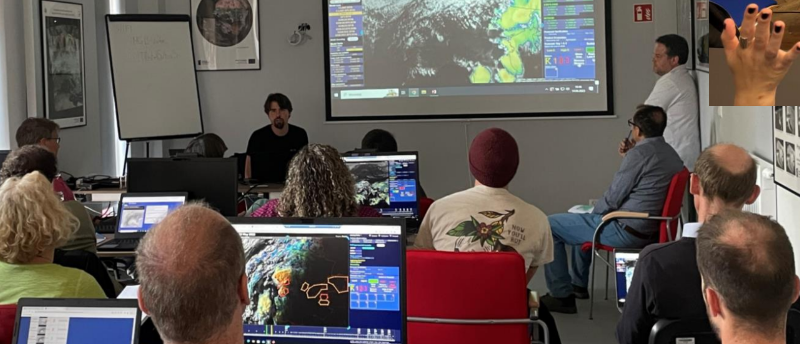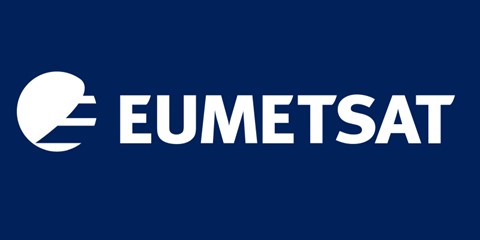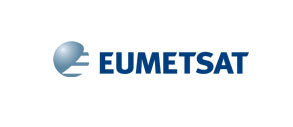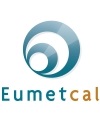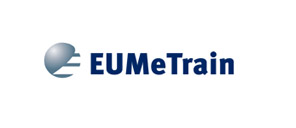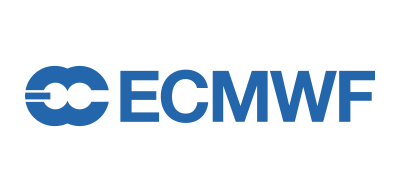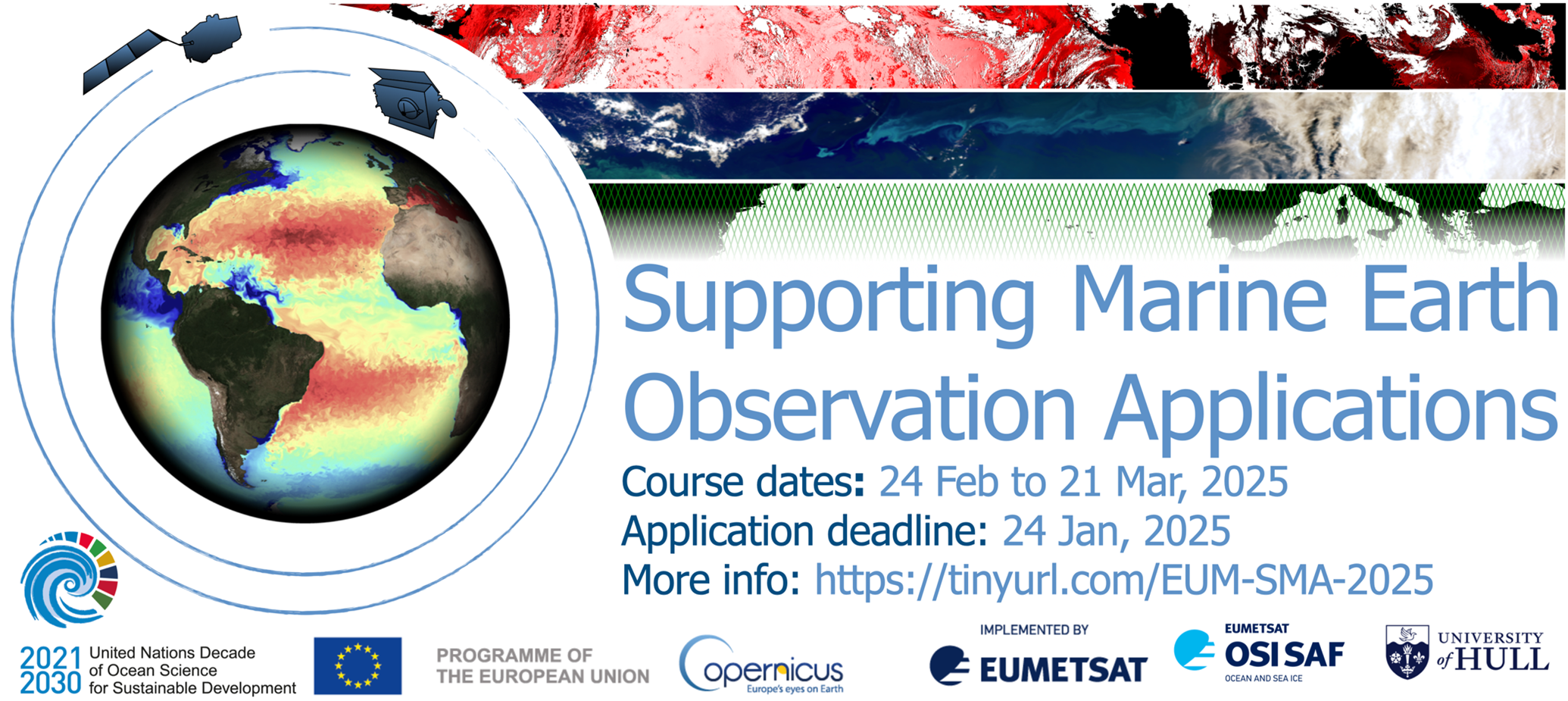
Join the 2026 Supporting Marine Earth Observation Applications course
23 February - 20 March 2026 / OnlineIn February 2026, we will conduct the next iteration of the EUMETSAT Supporting Marine Earth Observation Applications course. This month-long event, hosted entirely online, will consist of a three-week, self-paced learning phase and a synchronous one-week mini-project development phase. Throughout, we will work with you to co-develop workflows that use our marine data to support your application and research needs, as defined by you.
The course will focus on products from the Copernicus Sentinel-3 and Sentinel-6 satellites, those from Copernicus contributory missions and downstream services, and those provided by our Ocean and Sea Ice Application facility (OSI SAF). Projects that centre on the use of ocean colour, sea surface temperature, sea surface topography, sea ice, and winds are all in scope. We will provide software tutorials for working with all data streams and introduce adaptable Jupyter Notebook-based code examples to support your workflows.
If you are looking to expand your understanding of our marine Earth observation, want to know more about our marine product portfolio, or are looking to exploit our data to advance your applications and/or research goals, then we encourage you to apply.
For more information on how to apply for this course, please visit the event page.
